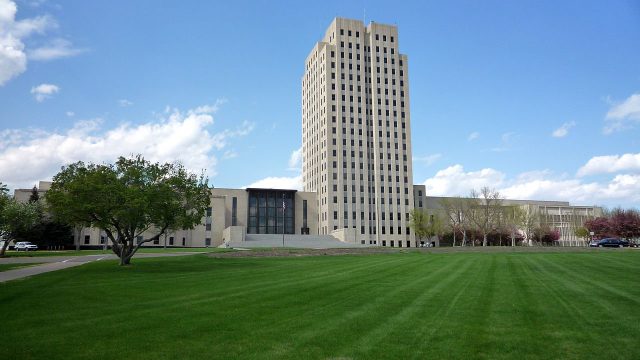John Olsrud: Solutions In Search Of Problems

Eight years ago I retired as director of the North Dakota Legislative Council. I was proud of my position and proud to tell people who I worked for. From its creation in 1945 until 1969 the agency was known as the Legislative Research Committee. It was renamed the Legislative Council to more accurately reflect the many services the agency provided. I never had any problem with the name, and had no difficulty distinguishing between the staff and the council, the legislators who were our bosses. I did not think anybody else had a problem with the name either. How difficult is it to understand the people in charge of a governmental agency need a staff, and that staff carries the same name as the officials in charge?
After I retired, some bright lights in the legislative branch of state government decided it was too confusing to have a Legislative Council and a staff with the same name. They then decided to change the law so the legislators who serve on the governing board would be called Legislative Management, and the staff would retain the name Legislative Council. See a problem with that? In my opinion, Legislative Management is an awkward term. One Legislative Council interim committee used to be called the Legislative Management Committee, which consisted of leadership and the name accurately described the committee’s function. The name Legislative Management Committee makes sense, but Legislative Management, standing alone, is awkward.
During legislative sessions the management of the process is really the purview of the elected leadership of each caucus, particularly the majority leaders. Legislative Management (previously the Legislative Council) is the statutory body that includes legislative leadership and is the entity that runs the legislative branch during the interim between sessions, and the staff serves the legislative branch both during the interim and during sessions. During sessions, Legislative Management is not an apt description of who is really managing the Legislative Assembly. Thus, Legislative Management is not only awkward, it is a misnomer.
Among the dictionary definitions of the word “council” are a group of people chosen to make rules, laws, or decisions; a group elected or appointed as an advisory or legislative body; or a group of people who come together to consult, deliberate, and make decisions. To be fair, one dictionary defines the word to mean a group of people who provide advice or guidance, which accurately describes the Legislative Council staff, but I think most people think of a council as decision makers and not staff.
If it was too confusing to have a Legislative Council and a Legislative Council staff, then should we apply the same logic to other entities in government? If we cannot differentiate between the elected or appointed people serving on governmental boards and their staffs, then we need a few more changes. Let’s rename the State Water Commission the State Water Management, and their staff will remain the State Water Commission. Let’s rename the Public Service Commission the Public Service Management, and their staff will remain the Public Service Commission. Let’s rename the Industrial Commission the Industrial Management, and their staff will remain the Industrial Commission. Those staffs are not “commissions”, you say? Neither is the Legislative Council staff a “council” as that term is commonly understood.
See how much fun we can have when we look for solutions in search of a problem?




